Grammar practice Grammar Worksheets for 4-Year-Olds
6 filtered results
-
From - To
Discover engaging grammar practice worksheets designed specifically for 4-year-olds! At Kids Academy, our interactive resources aim to make learning fun while helping young learners develop essential language skills. These printable grammar worksheets introduce concepts such as sentence formation, punctuation, and word usage through colorful illustrations and relatable themes. Perfect for home or classroom use, our activities foster creativity, strengthen critical thinking, and enhance verbal expression. With a variety of exercises tailored to young minds, your little ones will gain confidence as they explore the exciting world of grammar. Start their language journey today with our delightful and educational materials!
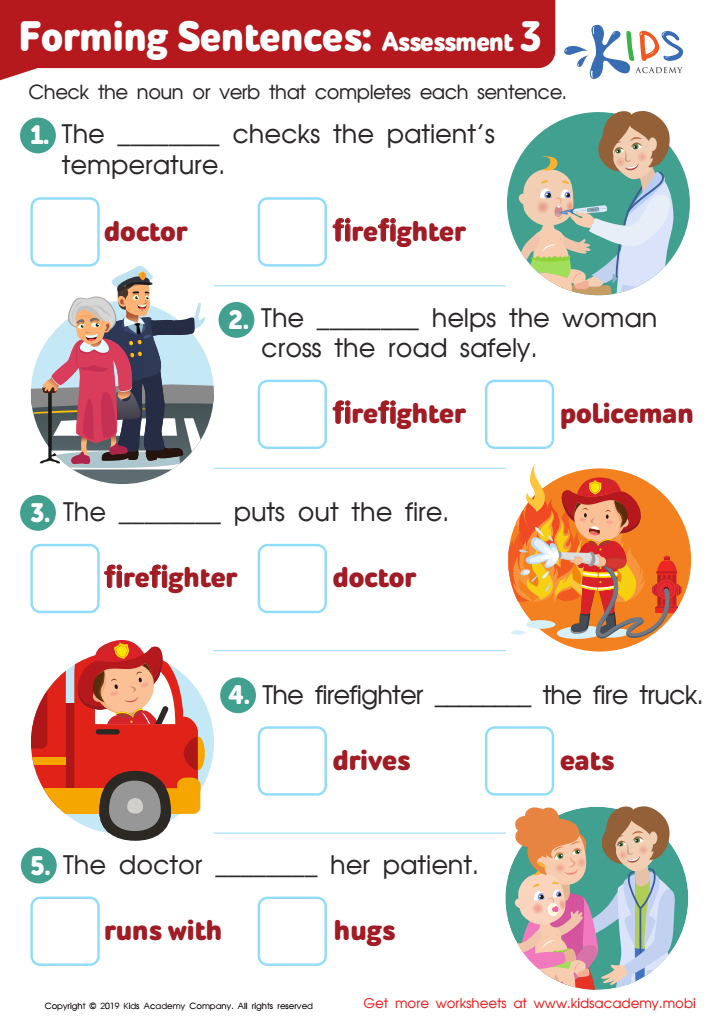

Forming Sentences: Assessment 3 Worksheet
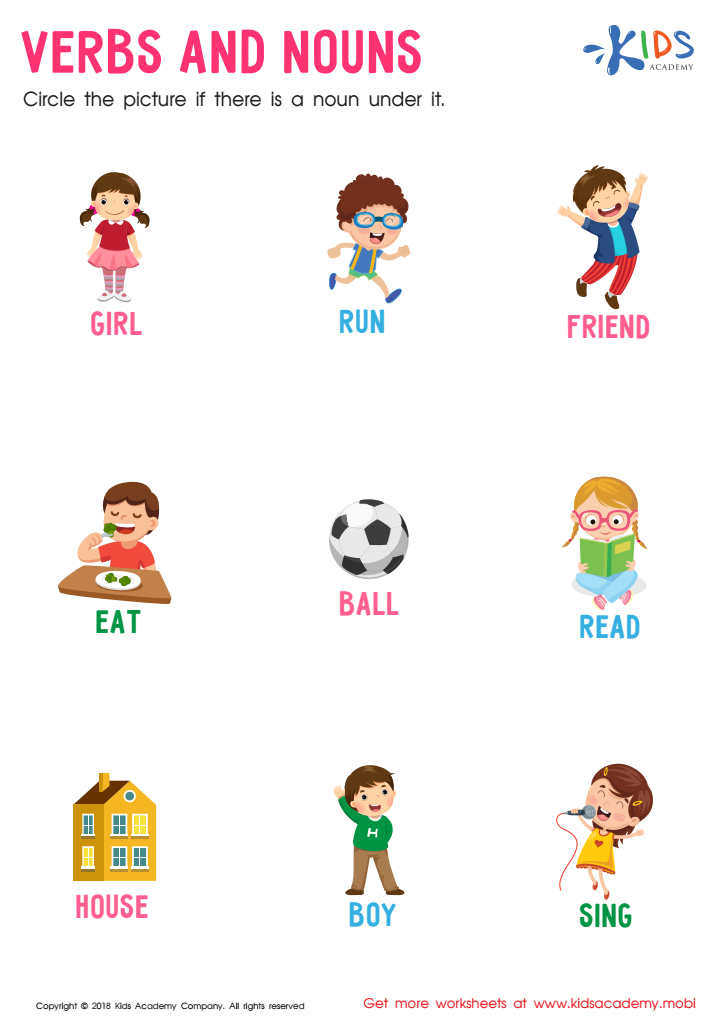

Verbs and Nouns Worksheet
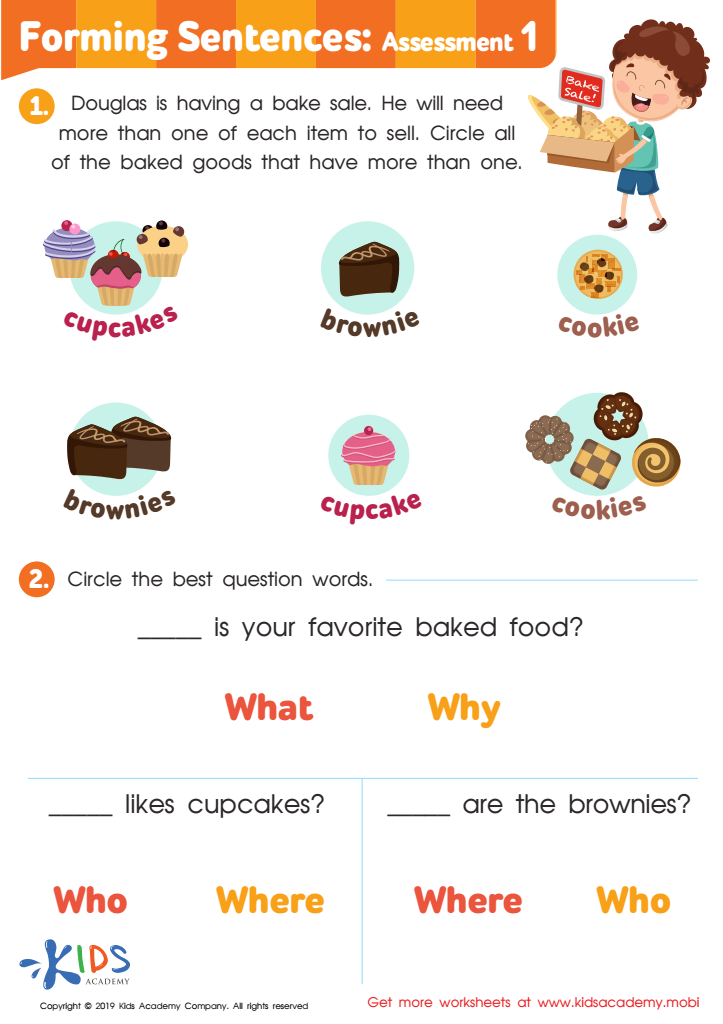

Forming Sentences: Assessment 1 Worksheet
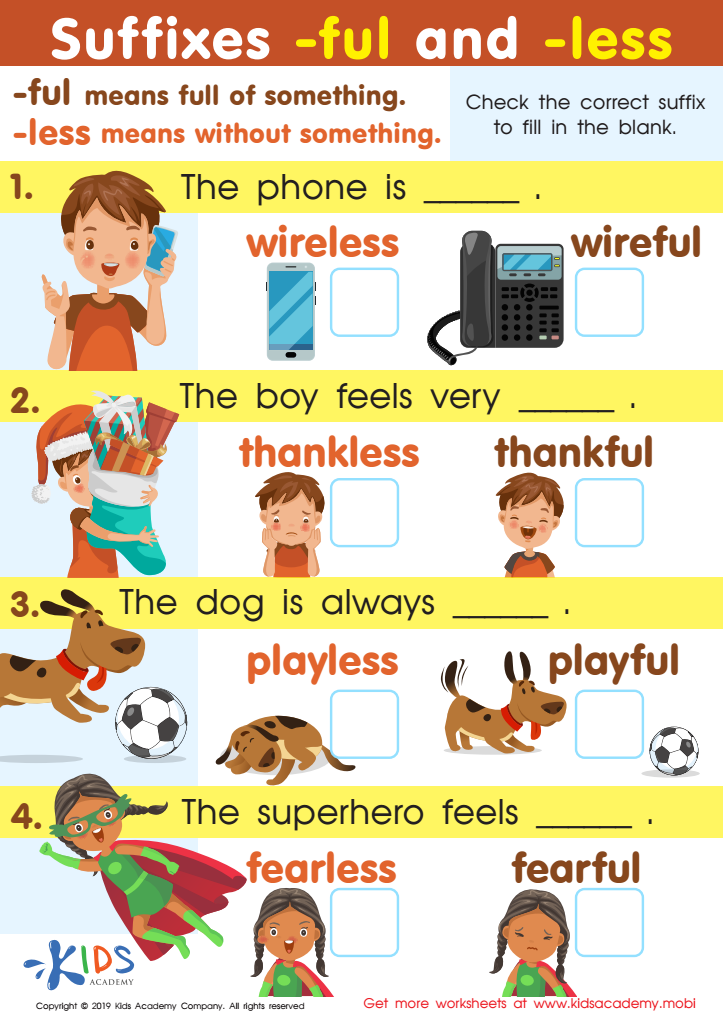

Suffixes –ful and –less Worksheet
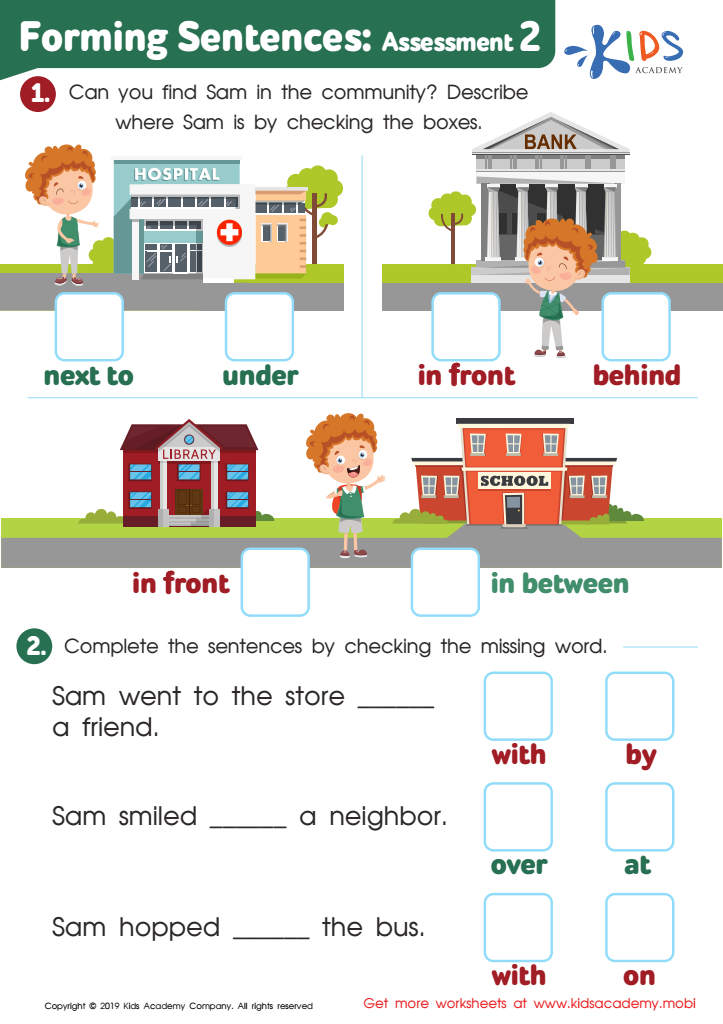

Forming Sentences: Assessment 2 Worksheet
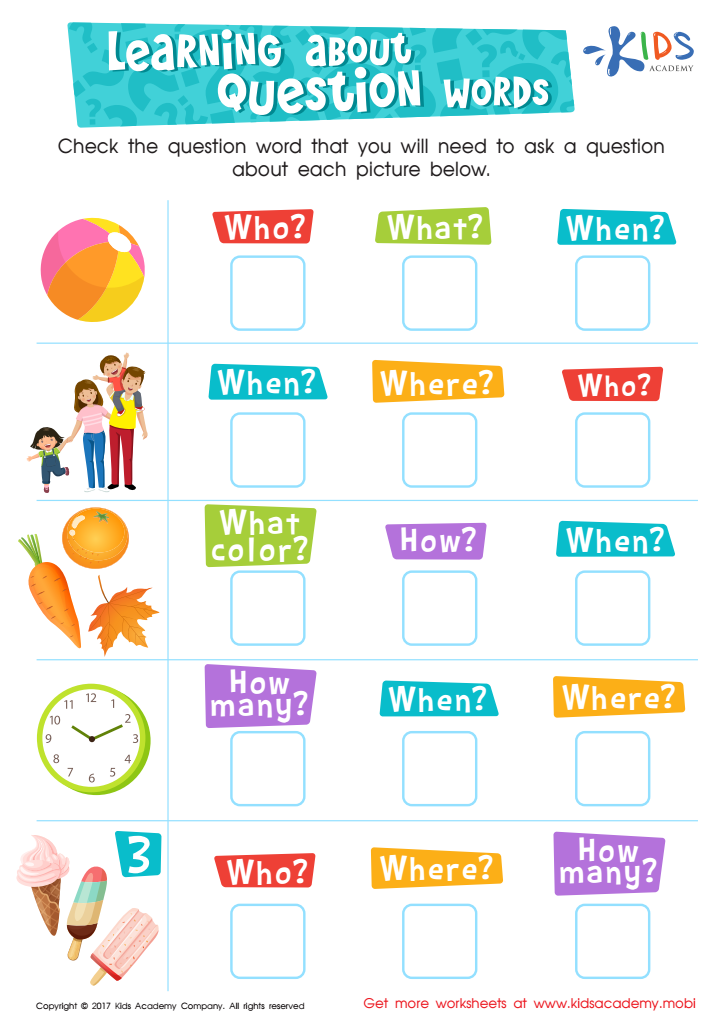

Learning about Question Words Worksheet
Grammar practice for 4-year-olds is crucial for several reasons. Firstly, it lays the foundation for effective communication skills, enabling young learners to express their thoughts and feelings clearly. At this age, children are naturally curious about language, and engaging them in grammar practice can enhance their vocabulary and sentence structure, fostering a love for language and reading.
Secondly, grammar activities stimulate cognitive development. Through playful interactions with words and sentences, children improve their problem-solving abilities and critical thinking skills. As they learn to construct sentences and understand basic grammar rules, they also begin to develop a sense of logic and order.
Additionally, grammar practice promotes social skills. When children communicate effectively with peers and adults, they build relationships and gain confidence in their ability to share ideas. It encourages listening and understanding in conversations.
Furthermore, early grammar skills are predictive of future academic success. Mastery of basic language conventions can lead to improved performance in reading and writing later on.
Incorporating grammar practice into daily activities can be fun and engaging, using games, songs, and storytelling. Ultimately, teachers and parents should care about grammar for young children as it significantly impacts their overall development and future learning opportunities.
 Assign to My Students
Assign to My Students
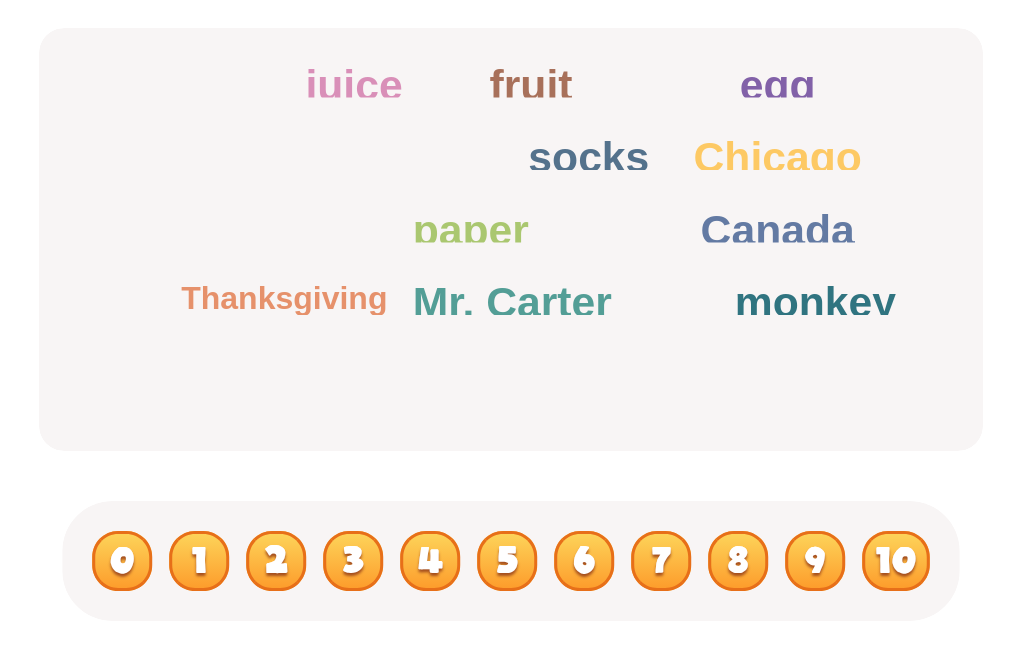
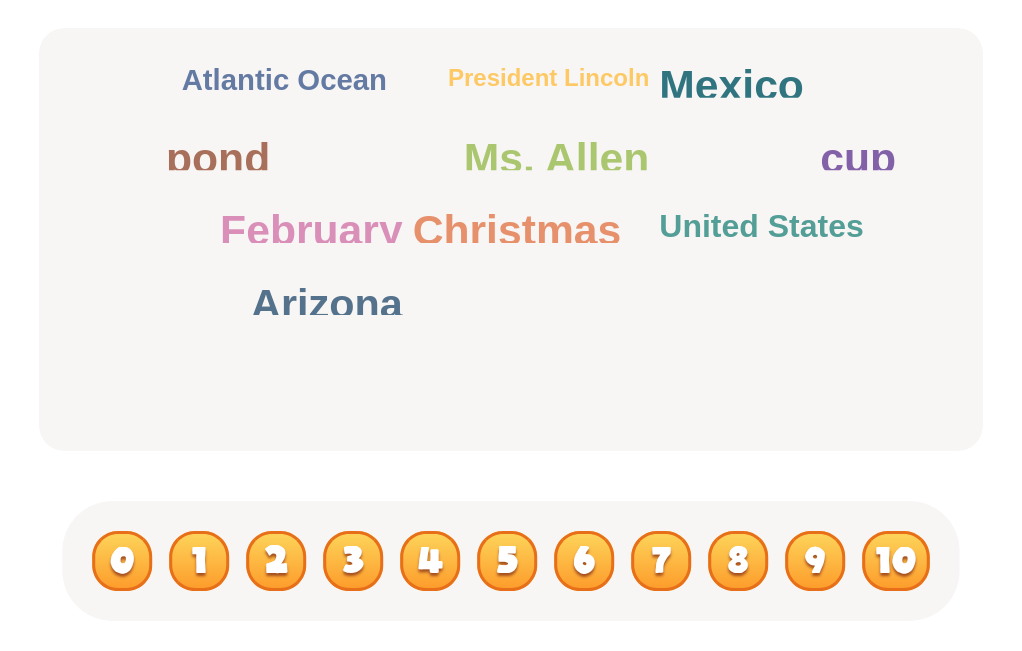
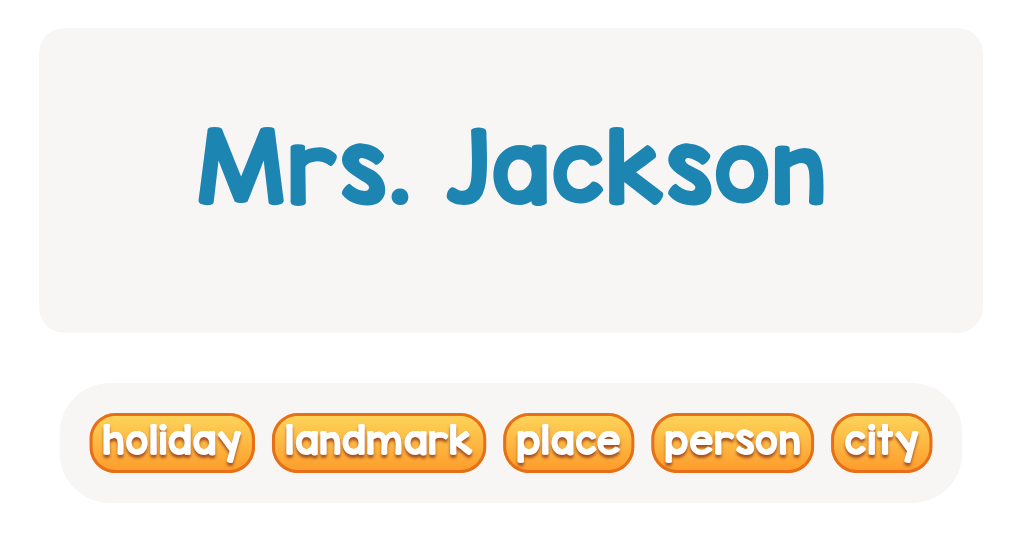
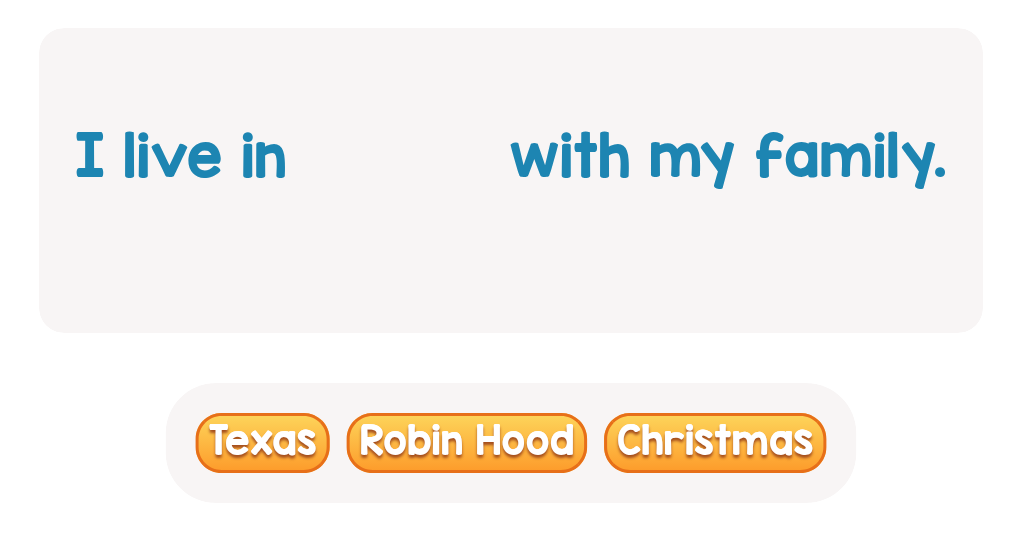

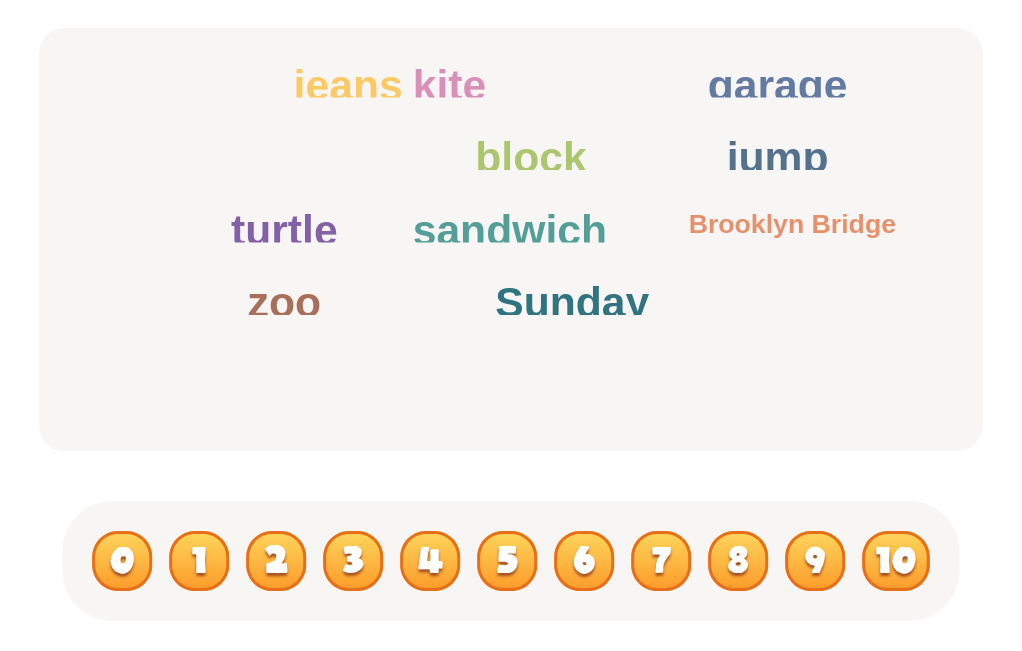
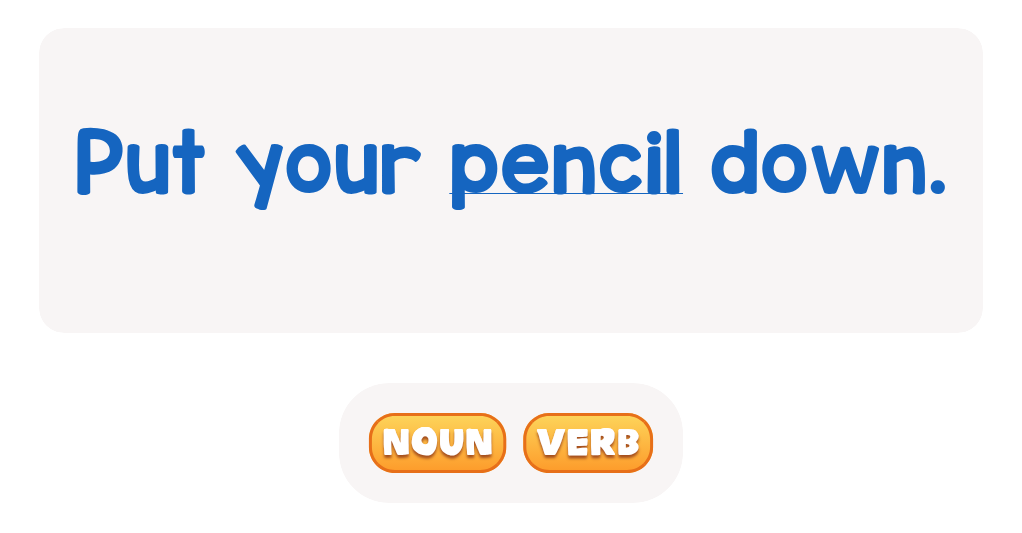
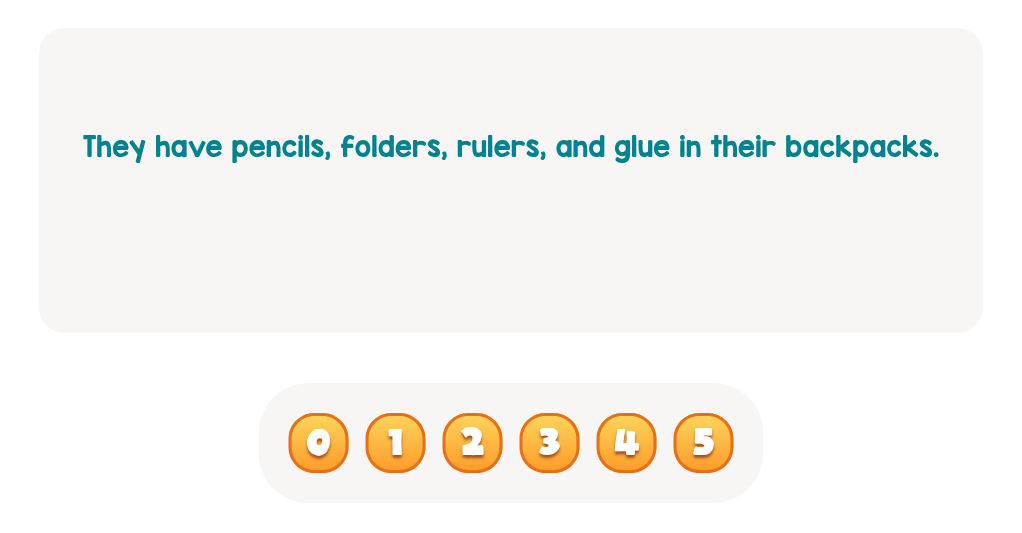
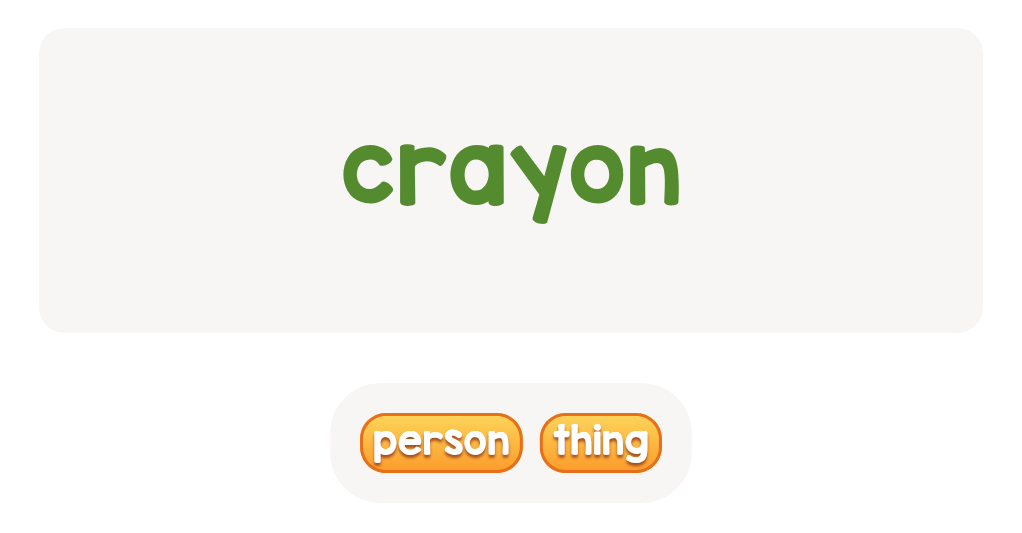
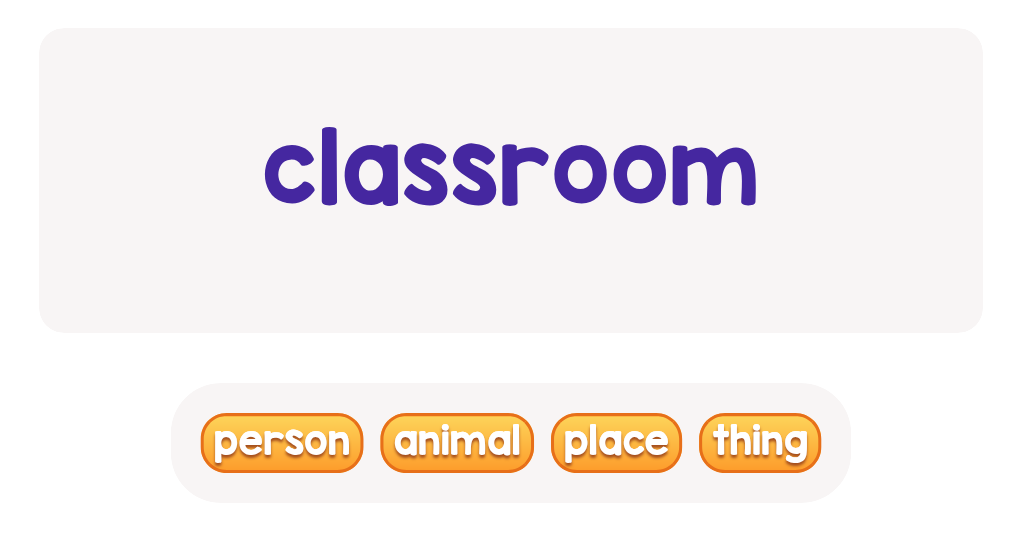




.jpg)











